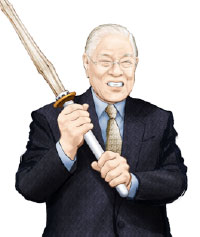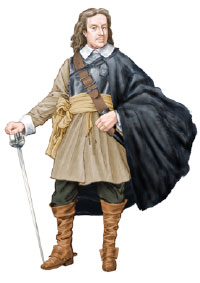Past Life Stories: Lee Teng-hui
Humans are eternal beings that undergo reincarnation to polish their souls and improve themselves. This process of reincarnation becomes a unique story for each individual personality. The spiritual investigations into the reincarnations of renowned people bring to light the secrets of this long process of soul polishing.
Risking Life for Honor

Lee Teng-hui
(b. 1923)
Lee was the third President of Taiwan. He was born in the Sanzhi District. After studying at Kyoto Imperial University, he obtained a doctoral degree in agricultural economics at Cornell University in 1968. He held a professorship at National Taiwan University before joining the Kuomintang in 1971 where he solved agricultural and irrigation problems. Lee became President of Taiwan after the death of President Chiang Ching-kuo in January 1988, and contributed to democratizing Taiwan and establishing a national identity.
Yoshiteru Ashikaga
(1536 – 1565)
The 13th Shogun of the Ashikaga Shogunate, Yoshiteru completed a path of swordsmanship with master Tsukahara Bokuden with the hope of bringing peace to the country. He therefore came to be known as ‘master swordsman shogun’. Despite political struggles with the capital, he became a shogun and dedicated his life to establish order in the tumultuous world. After returning to the capital, his influence spread far and wide, but he ended his own life when he was besieged by Matsunaga Danjo Hisahide.

Oliver Cromwell
(1599 – 1658)
A leader during the English Civil War, Cromwell was born into a middle gentry family in Huntingdon, England. He became a Member of Parliament at age 29 amidst the feud between the King and Parliament. As soon as the civil war broke out, he showed brilliance during military drills, and was appointed colonel and later Lieutenant General. After the King’s execution, he made numerous government reforms as Lord Protector. He modernized the navy and set the stage for Britain’s subsequent rise to global dominance.
The Unification of My Fatherland Is Inevitable and Necessary
At the beginning of the year Chinese President Xi Jinping made clear his ambition to annex Taiwan with suggestions of military action. Geographically, Taiwan blocks China from direct access to the Pacific, and the island nation is becoming increasingly influenced by the U.S. It’s Western values such as freedom are gradually spreading onto the Mainland.
Taiwan is like a knife at China’s throat. And there was one man who sharpened the blade with the power of democracy and pointed it at the Communist Party of China. It was Lee Teng-hui, the former President of Taiwan.
Lee became the first President to be chosen by direct elections. China attempted to stop the elections by launching several missiles into the ocean nearby as a threat, but Lee remained steadfast. Ultimately, the people of Taiwan chose him to be their leader, and China had to endure the humiliation.
Lee is also an indomitable leader, and that spirit originates in his past life experiences in Japan and Britain.
Yoshiteru Ashikaga: Bushido to National Improvement
Happy Science’s spiritual research has discovered that Lee Teng-hui was most likely born in 16th century Japan.
The year was 1546. Japan was entering the age of warring states and a ceremony was taking place at Hiyoshi Shrine in a village near Kyoto to appoint a 10-year-old boy as the Shogun. The boy was Yoshiteru Ashikaga, the 13th Shogun of the Ashikaga Shogunate.
But the Shogun family had been defeated by powerful lords (such as Miyoshi Nagayoshi) and had to flee Kyoto (the capital), to this village. The boy had become the Shogun of a collapsing government.
Yoshiteru knew that he was just a Shogun for show. He was determined to break free from his fate and become a swordsman worthy of being a true leader, so he studied swordsmanship with the “sacred swordsman” Tsukahara Bokuden. After years of hard work, he completed his training.
The master swordsman shogun – as he came to be known – aspired to revive the old political order that centered around the Shogun. Yoshiteru started a war against Nagayoshi who now ruled the capital.
At the age of 22, he made peace with Nagayoshi and was able to return to Kyoto. He slowly built up his reputation as a Shogun through mediating feuds between lords and so on. He was getting closer to achieving his dream.
But tragedy struck. After Nagayoshi’s death, his successors did not think well of the Shogun. They began to plot his death.
In 1565, they brought a large army into Kyoto saying that they wanted to pray at Kiyomizu Temple, and instead surrounded the palace where the Shogun stayed. Surrounded by 12,000 soldiers, Yoshiteru realized that he could not escape.
“I do not want to die in hiding,” he said. “I will die fighting in front of everyone like a real Shogun.”
He planted numerous swords around him, and used them all in turn. Yoshiteru died a heroic death at the age of 29 in his fight against a huge army.
“Is the May rain my tears or the mist? Cuckoo, take my name and soar above the clouds.” (His death poem)
Yoshiteru’s name was etched into Japanese history as the embodiment of Bushido.
Cromwell: Protector of Religious Freedom
Yoshiteru couldn’t accomplish his dream. But 30 years later, the same soul who dreamed of improving the world through Bushido appeared in Britain to facilitate a major revolution.
Early 17th century Britain was a time when the King and Parliament were feuding over political sovereignty. Oliver Cromwell was born at this time into a family of the landed gentry.
As a youth he awakened to the Puritan faith, and felt disdain for empty theology without practice. He sought to live according to the Scriptures, and to uphold God’s glory. Like Bushido, he believed that it was sometimes necessary to fight in the name of justice. His faith made him a dominant player in the English Civil War.
The Church of England had been persecuting the Puritans, which made them spread into Scotland. Then in 1637, King Charles I attempted to impose the High Anglican version of the Book of Common Prayer on the people of Scotland. This had the people in an uproar.
Eventually a civil war broke out with the Puritans demanding religious freedom. The Parliamentarians who sided with the Puritans provided an army, and a series of fierce battles ensued.
Cromwell, who was then a Member of Parliament, emerged as a fighter like in his previous life. In the name of justice he unsheathed his sword without flinching against the vast enemy forces. His heart was in the same place as in his previous life, but this time it was not a swordsman Shogun’s lone struggle. He had developed into a group leader motivated by faith.
The Parliamentarians were less skilled in battle than the Royalists, so Cromwell formed cavalry troopers called Ironsides. He recruited people from all ranks of society – from aristocrats to commoners- into the Ironsides. In fact, social class did not matter to him when he appointed his captains. The only thing that mattered to him was their will.
“I had rather have a plain, russet-coated Captain, that knows what he fights for, and loves what he knows, than that you call a Gentleman and is nothing else.” (Oliver Cromwell)
If he chose honest devout people to be his officers, then honest men will follow them, he thought. He had the Ironsides train the militia and this eventually grew into a full regiment.
Cromwell’s revolution began with the demand for religious freedom, but the Puritan troops also developed the first budding signs of democracy. They believed that before God they were equals.
The Ironsides sang hymns into battle and defeated the Royalists time and again. They destroyed the Church of England’s religious hegemony over Britain and thus established religious freedom. Their victory became the foundation stone for the democracy Britain enjoys today.
Once he became Lord Protector, Cromwell made rapid advancements in modernization: expanding the navy, speeding up legal proceedings, providing education across the country, introducing policies to eradicate poverty, reforming public morals, tightening grips on sexual misconduct and violence. These things are now common sense, but back then they were too advanced to attract widespread approval.
As with many reformers, the people couldn’t understand Cromwell. They resisted his ideas, and the Royalists plotted to regain power. This led Cromwell to reluctantly execute the King. And seeing that Parliament was trying to solidify social classes, he dissolved it to replace the members.
This led people to believe that he was a dictator, but his heart was filled with love for his people until the day of his death.
“I desire not to keep my place in this government an hour longer than I may preserve England in its just rights, and may protect the people of God in such a just liberty of their consciences.” (Oliver Cromwell)
Lee Teng-hui: Fusing Bushido and Christianity
The religious freedom that Cromwell protected with his life later became the foundation for democracy. This freedom gene was planted across the world, and the 20th century saw a tidal wave of democratizations. In his next life, this same soul was to face the greatest enemy of this new wave.
Lee Teng-hui was born in 1923 as the son of a police officer in Taipei back when it was under Japanese occupation. In his youth, a strange coincidence led him to Kyoto – the place where Yoshiteru died – and ponder the question “what does it mean to live?” while studying at Kyoto Imperial University. There he discovered the book “Bushido” by Inazo Nitobe.
“When one is prepared to give his life, anything becomes possible.”
He must have felt nostalgia deep within, because it was in this book that he found the meaning of his life.
Lee spent a few years as a volunteer in the Imperial Japanese Army, and after the war, he studied at National Taiwan University and Cornell University in the U.S. to deepen his self-realization.
During these years, Lee once again rediscovered his soul memories: at age 30 he was profoundly struck by Christianity, and became a Christian. Kanzo Uchimura, a dear friend of Inazo Nitobe, advocated the life of Bushido grafted with Christianity, and also said, “A country rife with corrupt politics requires another Cromwell.” Lee Teng-hui was later to become exactly that.
President Chiang Ching-kuo (son of the first president of Taiwan, Chiang Kai-shek) liked Lee’s agricultural policies, and Lee gradually rose through the ranks, first as Mayor of Taipei, then as Chairman of the Kuomintang, and finally as Vice President of Taiwan.
After the sudden death of President Chiang, Lee became his successor as the President of Taiwan.
Right before he was officially inaugurated, Lee read the Book of Isaiah and felt his divine mission resonating inside. “If it be the will of God, I will work for the future generations of Taiwan no matter how painful the path may be,” he said to himself.
He took the seeds of democracy that he planted in Britain in his previous life, and began to sow them in Taiwan. Back then, Taiwan was ruled by ministers who were appointed for life by the Mainland, and the army had vowed allegiance to the Kuomintang and the Chiang family. Lee directly met with over 600 ministers to prove his sincerity, and then dissolved the national assembly. He continued constitutional reforms, and finally established Taiwan’s first direct presidential elections.
“Everyday was a battle,” Lee reflects.
But his greatest enemy lay on the other side of the Taiwan Strait.
The Communist Party of China feared that the democratic revolution in Taiwan would spread into the Mainland and threaten their one-party dictatorship. So just before the elections took place, they threatened Lee by launching several missiles into the ocean near Taiwan.
This was when Lee’s spiritual experiences as a samurai came to the fore.
“If they shoot at us, we’ll shoot back and crush those missiles into pieces . . . Bushido helps us have a steadfast will and make the right decisions.”
The way he faced the superpower next to them and insisted on protecting democracy shows traces of Yoshiteru and Cromwell’s battles against a stronger enemy.
In the end, Lee Teng-hui was elected president and became the first Taiwanese President to achieve democratization.
“My heart will forever be where the people’s desires lie.”
His slogan was his spiritual path of love, going from a dictator in the 16th century Japan to a democratic revolutionary leader in the 20th century Taiwan. In 1999, he said that Taiwan and China have a unique country-to-country relationship, declaring to the international community that Taiwan is a sovereign nation where the people shape the future of the country.
Lee was also honorable in stepping off his presidential podium. He decided that the presidential term should be 2 terms of a total of 8 years in order to prevent the rise of a dictatorship. In 2000, he followed his own law and stepped down as president, and the people’s democratic vote changed the party in power to the Democratic Progressive Party.
The moment Lee resigned, it firmly established democracy in Taiwan not just as an ideal but also as a reality. This is what makes Taiwan different from the Chinese Communist Party.
The spirit of democracy continues to fight against China’s one-party dictatorship.
And the fight for freedom and democracy will continue around the world. And ultimately what is most important is the spiritual backbone equivalent to Bushido, and also religious faith. Lee Teng-hui’s various incarnations teach us what is most important to become a true leader.



















